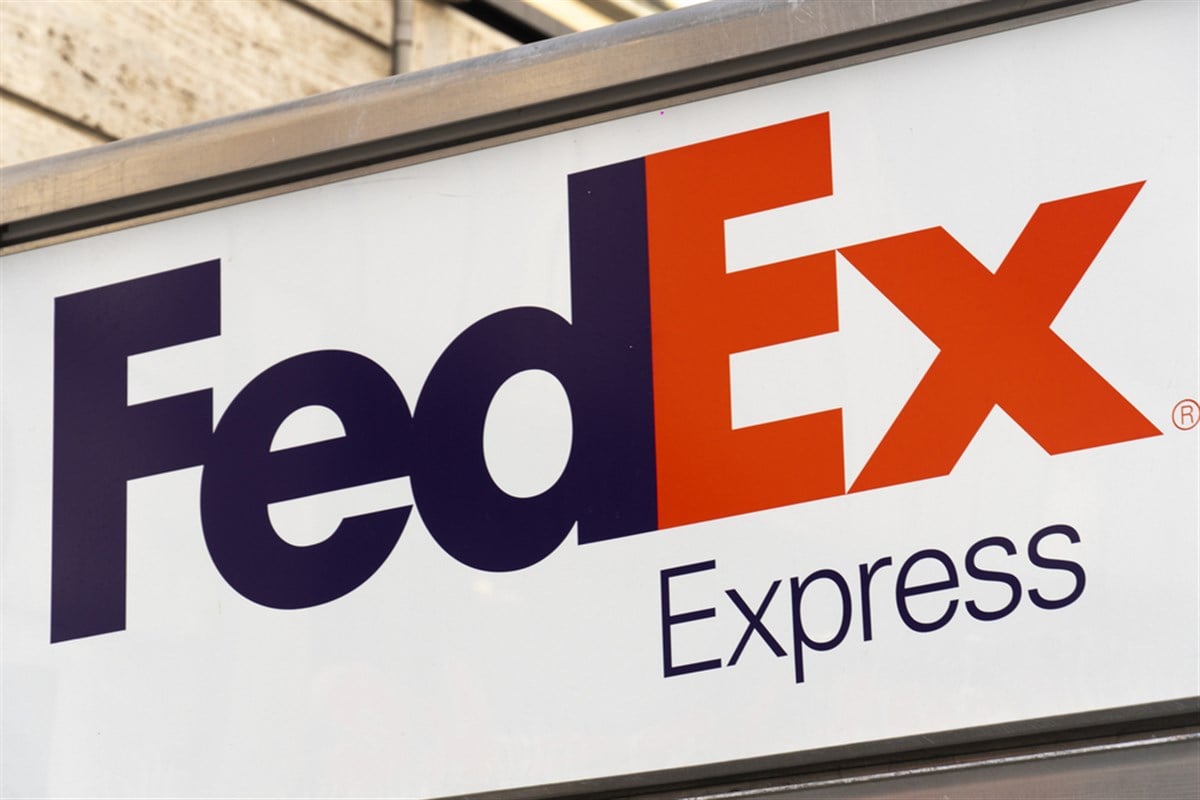
Shares of FedEx Co. (NYSE: FDX) have recently sold off by as much as 18% from their recent highs to trade at a much lower 81% of their 52-week high. As Wall Street defines a bear market as a 20% or more selloff from recent highs, FedEx is now in an official bear market, causing most to stay away from the company and others to watch it all the more.
As this stock is part of the broader transportation sector, some are anxious about the selloff implications for the consumer discretionary sector since FedEx takes care of product shipping for consumers across the United States.
However, the real reason for FedEx's weakness is not in the consumer segment but in the business shipping volumes and frequencies, significantly reducing the company's fees.
There are typically two industries that historically act as a leading indicator of the economy's path in the near future: the real estate sector and the transportation sector. Investors now have new insight into what is happening in the latter, all told within FedEx's latest earnings results and lack of management guidance moving forward. The resulting view might be a surprise compared to the recent price action seen in the stock.
Market Interest Sparks a Fresh Focus on FedEx Stock Today
It all starts with volume, which is a response to a stock’s price advertisement. In the case of FedEx, recent volume reached up to 17.5 million shares compared to its average of 1.9 million shares. As the stock reaches this new low price, spiking volume typically suggests new buyers are willing to come in and catch it in its decline.
However, the market isn’t alone in this view, as some Wall Street analysts still see enough reason to stay bullish on FedEx stock. Right after the earnings results, Stephens decided to reiterate their “Overweight” rating on FedEx stock and keep a price target of up to $350 a share for it.
To prove these analysts right, the stock would need to rally by as much as 37.5% from its current level. Helping these analysts land on such a bullish view is the overall earnings per share (EPS) forecast for the next 12 months. Wall Street now sees FedEx swing its EPS from $3.6 today to $4.56 next year.
This massive jump would mean a growth rate of up to 26.6%, which makes a few analysts question whether today’s price targets are lower than where they should be for FedEx. After all, this is one of the few companies operating in the niche, with arguably two competitors being United Parcel Service Inc. (NYSE: UPS), and Amazon.com Inc. (NASDAQ: AMZN) in a few ways.
Despite the expectations for a reasonable slowdown in business, bears couldn’t even justify going into the stock and put some skin in the game for their views. FedEx stock’s short interest declined by 8.2% in the past month, showing signs of bearish capitulation and opening more room for bulls to take their places.
That’s exactly what investors would’ve noticed in the new $61.6 million stake coming from the Healthcare of Ontario Pension Plan Trust Fund or the bigger $9.8 billion of institutional capital that made its way into the company over the past year. But the optimism doesn’t end in Wall Street.
Marjorie Taylor Greene, a U.S. Congress Member, bought up to $15,000 worth of FedEx stock as of the first week of September 2024, meaning some interest is also coming from the government’s side. Okay, now investors get to see what’s driving these views and whether the latest earnings show a sign of recovery.
FedEx Management Increases Stake, Signaling Good News for Investors
Through what is now called an "Accelerated Share Repurchase" program, FedEx management saw fit to buy up to $1 billion worth of the company's stock in bulk. Since these programs are funded with shareholder capital, investors can realistically assume that management expects to see a net return from this investment.
That return might be delivered through analyst EPS growth forecasts, in their price targets, or, more specifically, through the recent discount the stock offers the market today after its steep selloff. As bad as this quarter's 24% contraction in EPS may seem, better news is found in the company's free cash flow.
Calculated as operating cash flow minus capital expenditures, this metric was $940 million for the same quarter last year but only $420 million for this quarter. This would normally be bad if management was unaware of the issues causing this state, but they are trying to fix it, and that's reassuring.
Through the DRIVE program, a new management initiative to cut costs and improve the company's profitability, FedEx achieved permanent cost reductions of up to $2.2 billion this quarter. If they manage to keep implementing the necessary changes, this measure could improve for the rest of the year.
So, while the picture may still seem rocky for FedEx stock, there are reasons for investors to believe the future now looks brighter than before, and this is something they can exploit down the line.




